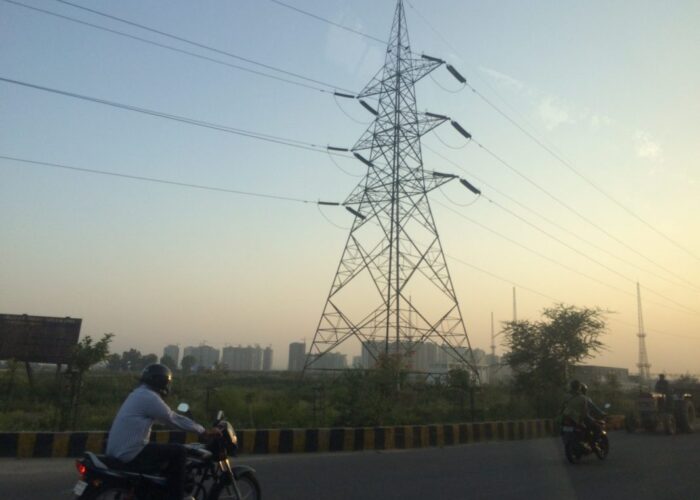
The days of naming financing as one of the major hurdles for Indian solar as record low tariffs were enabled by a newly-attractive fiscal environment. PV Tech caught up with Kuljit Singh, partner, Transaction Advisory Services at EY, to discuss a potential spate of Indian solar IPOs, pension fund interest, Masala bonds and the future of the market. EY is an advisory firm, covering areas ranging from bidding, funding, policy, regulatory commissions and M&As.
Acme Solar and Sembcorp made recent headlines with IPO plans, but how significant is it that Acme has filed for an IPO within India rather than abroad?
Try Premium for just $1
- Full premium access for the first month at only $1
- Converts to an annual rate after 30 days unless cancelled
- Cancel anytime during the trial period
Premium Benefits
- Expert industry analysis and interviews
- Digital access to PV Tech Power journal
- Exclusive event discounts
Or get the full Premium subscription right away
Or continue reading this article for free
Kuljit Singh: It's an important development because it’s the first in a while. The last time a renewable energy portfolio got listed was around six years ago by Orient Green Power and after that no other company of any meaningful scale in the renewable energy space got listed. So if now a new IPO listing happens that’s a major achievement, a major milestone for the sector. It’s a new kind of product from an investors perspective also.
Normally renewable energy projects are attractive in the sense that they have long-term revenue visibility. PPAs are usually for 25-years, so you have visibility of revenue right up front.
Are pension funds finally getting into Indian solar?
They are not well established, but all of them are looking for deals. It’s just by chance that they have not been able to get any investments actually closed. CDPQ did some investments in Azure but other than that I don’t recall any other major pension fund actually putting in money.
What is the current financing situation for utility-scale solar in India?
Raising debt in India is not an issue as you always have government-owned specialised power sector entities like IREDA, PFC and REC, who are almost 'lenders of last resort'. They are always there to lend, especially if there is a tender process backed by the government. You also have the normal commercial banks, but if they are hesitant or slow in taking lending decisions due to non-performing asset (NPA) fears, then you always have these other entities who are willing to chip in. So debt financing in India is not really an issue.
As far as equity is concerned, a lot of the Indian companies have tended to do self-EPC so they are able to generate a part of the equity from the project cost itself. For the remaining capital, there will be several rounds of investment by private equity players. We will also possibly see a spate of IPOs. Some companies have filed for IPOs already and they will be able to raise capital from there. If some of those initial IPOs are successful then a large number of people will target this market.
The real capital constraint will probably be for the smaller portfolios because the market by now has matured. The days of smaller portfolios are gone and you will probably have to already have a certain size if you want to attract financial investors or if you want to go through the IPO market.
For rooftop PV, the market is still very underdeveloped and highly segregated. The scale of business is still very low and will be going forward. Meanwhile, the set of investors who want to put money into rooftop is also pretty different.
There’s also been a lot of activity in the Masala (Green) Bond space, but to what effect?
A lot of people are issuing these green bonds, particularly in the international markets. The charm of these bonds is that they typically come with 'bullet' maturity, where the full payment is made at the end of the loan, so they are very beneficial.
But while there are benefits from a cash flow perspective, of course, it also exposes you to a refinancing risk. If you have to suddenly make a lump sum payment of a huge amount, it will put pressure on your balance sheet. However, I think for the time being the markets are simply ignoring that.
Secondly, because these bonds are dollar-denominated, many people are not hedging those bonds or if they are hedging them they are hedging them with all kinds of creative structures. Thus, in the minds of many developers, the cost of this is not very significant or still is a substantial discount to what they could get from the Indian market. That’s the second attraction for them.
The third attraction of these bonds is that many players think it establishes their brand in the global market, because people get to know their company.
How confident are you in the sector given the uncertainties around GST and anti-dumping for example?
Those are just one off issues at a particular point in time. They do have an impact, but they have a very temporary and focused impact. While this uncertainty lasts, it will affect projects, but once the market gets to understand what the actual implications are on both these initiatives, then they will move ahead.
Are people aware of future transmission constraints?
It’s heads in the sand right now. I don’t think people really care too much about this issue for the time being. The government has made changes in the competitive bidding guidelines proposing a deemed generation benefit for a developer if they face grid issues such as curtailment. They are aiming to convert PPAs almost into ‘take or pay’ PPAs.
However, this still exposes the earlier projects to the problem. Indeed, in some states there have been transmission issues, while other distribution companies (Discoms) feel they don’t need the electricity and have been backing down renewable energy projects, despite the ‘Must-Run’ status renewables were given by the central government.






